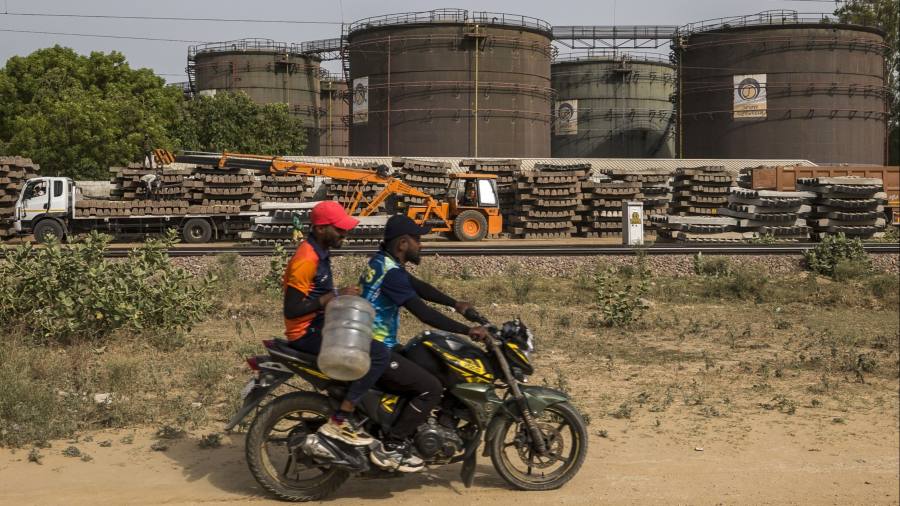
Russia has surpassed Iraq and Saudi Arabia as India’s largest supplier of oil, according to independent research companies, as Asia’s third-largest economy cashes in on steep price discounts caused by sanctions against Moscow.
India has historically bought most of its oil from Iraq and Saudi Arabia, but Russian imports have surged since president Vladimir Putin’s invasion of Ukraine.
Western energy sanctions against Russia have pushed it to cut prices for those buyers still willing to purchase its crude, squeezing out more expensive supply in countries such as India, oil trade data show.
US Treasury secretary Janet Yellen has signalled that the US was willing to see this trend continue, telling Indian media this week that Washington wanted India to benefit from a western price cap on Russian oil that would give it a bargaining chip to negotiate even deeper discounts.
G7 countries agreed in September to implement the price cap, which the US government hopes will be in place by December 5 when an EU embargo on the shipment of Russian crude comes into force.
Under the mechanism, European companies will be permitted to transport and insure shipments of Russian oil to third countries as long as it is sold below a fixed price — an effort to limit the impact of the sanctions on global oil flows but ensure Russia’s earns less from the trade.
“Our objective is to hold down the price that Russia receives for its oil and keep that oil trading,” Yellen told the Press Trust of India on Monday ahead of a visit to New Delhi this week. “Our hope would be that India would take advantage of this price cap.”
India’s foreign minister S Jaishankar was in Russia on Tuesday on a two-day visit — his first since the war began — that Moscow said would focus on trade and investment, use of the rupee and rouble in settlements and “promising projects in the energy sector”.
Jaishankar said the government was obliged to ensure consumers had access to international markets on the best possible terms. “And in that respect, quite honestly we have seen that the India-Russia relationship has worked to our advantage.”
Russia’s flagship Urals crude was trading at $80 a barrel on Tuesday, compared with $97 a barrel for Brent, the global benchmark. Urals crude has traded at a larger discount of around $30 for much of the year.
While estimates of India’s imports vary, analysts at three independent trackers said Russian crude had squeezed out more expensive Iraqi and Saudi Arabian oil over the past three months.
Russian crude arrivals into India, the world’s fastest-growing major economy, averaged 970,000 barrels per day in October, according to research firm Kpler, up around from 942,000 b/d in September.
Imports from Iraq averaged 806,000 b/d in September and 918,000 b/d in October, Kpler’s data show, while imports from Saudi Arabia plunged from 860,000 b/d in September to 617,000 b/d in October — their lowest level since March 2021.
Janiv Shah, senior analyst at research firm Rystad Energy, said his company’s data showed Russia was India’s biggest oil supplier in June, August, September and October.
“Russia is expanding its market share at the expense of Saudi,” said Serena Huang, head of Asia-Pacific analysis at Vortexa, a third independent energy analytics firm. Vortexa data found Russia’s shipments into India surpassed Iraq and Saudi for the first time in October.
Government and trade data compiled by Reuters showed Iraq as India’s top supplier for September.
Viktor Katona, lead crude analyst at Kpler, said discrepancies between commercial data such as Kpler’s and government figures could be down to timing. “We see the cargo movements, whilst national governments would most often calculate barrels that have been customs cleared, so there might be a time discrepancy.”
Rajeev Jain, additional director-general at India’s petroleum ministry, said there would be fluctuation among the country’s leading oil suppliers.
“Whatever price our oil companies can get that’s lowest, that’s what they’ll buy,” Jain told the Financial Times.